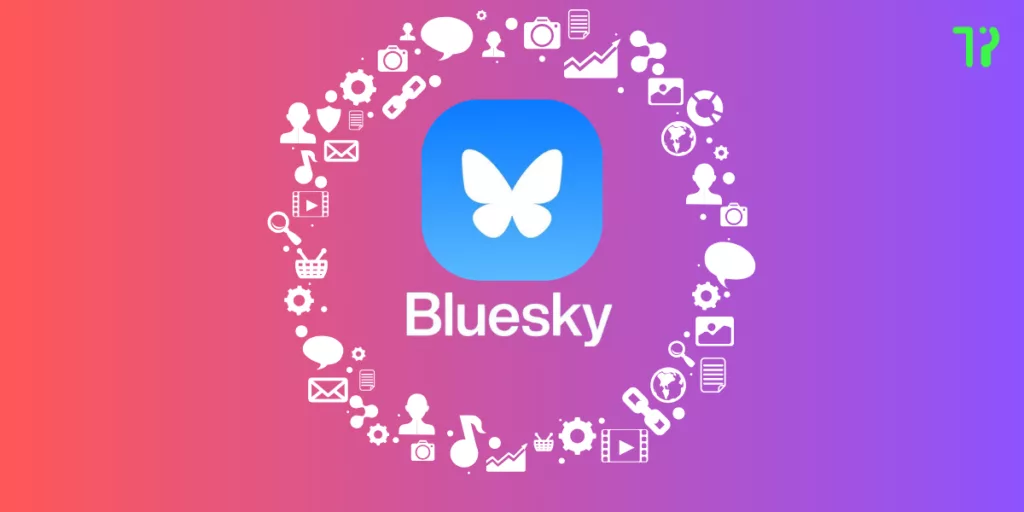
Bluesky's Growing Pains: Bots, Expansion, and the Future of Social Media
Bluesky has experienced a surge in users since the U.S. presidential election, drawing in those seeking an escape from Elon Musk’s X (formerly Twitter). Concerns over Musk’s alignment with President-elect Donald Trump, combined with dissatisfaction with Meta’s Threads, have led many to explore Bluesky as an alternative.
Originally an offshoot of Twitter, Bluesky was championed by former CEO Jack Dorsey as part of a decentralized vision for social media. While that goal may no longer align with Twitter’s trajectory, Bluesky’s exponential growth—doubling its user base since October—positions it as a potential challenger to established platforms.
The Surge in Numbers
Bluesky’s user base now exceeds 25 million, marking a critical stress test for the fledgling platform. According to Similarweb, Bluesky added 7.6 million monthly active users on iOS and Android in November—an astounding 295% increase from the previous month. Web traffic also skyrocketed by 189%, with 56.2 million visits across desktop and mobile.
Much of this spike coincided with major political shifts, including the U.S. elections and the temporary suspension of X in Brazil.
Laura Edelson, an assistant professor of computer science at Northeastern University, noted:
"Bluesky crossed the threshold where it’s now worth it for spammers and bots to flood the platform. The challenge is that Bluesky lacks the resources of larger platforms, forcing them to scale quickly without the same cash flow."
A Slow and Controlled Start
To manage growth, Bluesky initially operated on an invite-only basis until February, allowing the team to refine moderation tools and roll out unique features like curated “starter packs” of feeds. This slower rollout mirrored Meta’s recent efforts to introduce similar features.
Claire Wardle, a misinformation expert and professor at Cornell University, highlighted Bluesky’s user-centric approach:
"Bluesky embodies a different value system—one that empowers users to curate their experience, diverging from the top-down models of traditional social networks."
This emphasis on decentralization and transparency has positioned Bluesky as a scrappy underdog, appealing to users disillusioned by the corporate-driven nature of Meta and X.
Bots, Spam, and Disinformation
Despite its grassroots appeal, Bluesky isn’t immune to the pitfalls of social media growth. Users have reported increasing encounters with AI bots, plagiarized content, and divisive automated replies.
Lion Cassens, a PhD candidate in the Netherlands, stumbled upon a network of German-language AI bots:
"The bots were harmless, but their potential to spread disinformation is concerning. While Bluesky’s moderation feels more trustworthy than X under Musk, AI-driven content will only get more sophisticated."
Addressing Impersonation and Moderation
One major hurdle has been impersonation. In November, Cornell Tech’s Alexios Mantzarlis found that nearly half of Bluesky’s top 100 most-followed users had at least one duplicate account. Two weeks later, Bluesky had removed two-thirds of these copycat profiles, signaling proactive efforts to tackle the issue.
To strengthen moderation, Bluesky quadrupled its team and rolled out enhanced impersonation detection. Users can also subscribe to third-party "Labelers" who flag questionable content, further decentralizing moderation responsibilities.
Bluesky at a Crossroads
Edward Perez, former leader of Twitter’s civic integrity team, believes Bluesky is approaching a critical juncture:
"Bluesky is being pulled into the realities of global social media. If they want to sustain growth, prioritizing and mitigating threats must become their focus."
Beyond bots and misinformation, Bluesky faces another challenge—appealing to younger audiences. Text-based platforms like Bluesky are struggling to captivate Gen Z, who gravitate towards visual-first experiences like TikTok and Instagram.
A Pew Research study found only 17% of U.S. teens use X, down from 23% in 2022. Bluesky’s text-heavy format may struggle to capture this demographic, limiting its potential scale.
The New Era of Niche Platforms
Wardle predicts the era of one-size-fits-all platforms like Facebook is fading:
"Bluesky isn’t aiming to please everyone. The days of social networks trying to keep the entire world happy are likely over."
Instead, platforms are fragmenting along political and interest-based lines. Bluesky’s future may not lie in outgrowing X or Threads but in carving out its own niche—one built around transparency, user control, and decentralized values.
For now, Bluesky’s ascent is promising, but navigating the turbulent waters of social media growth will determine whether it remains a rising star or fades into the digital ether.